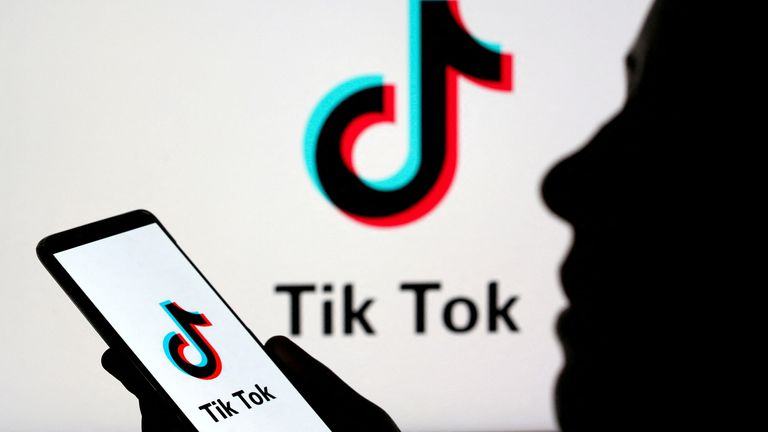In a significant breakthrough that could reshape the global digital landscape, the United States and China have agreed on a framework for a TikTok ownership deal. This agreement comes after years of escalating tensions over the app’s ownership, data security, and influence on millions of users worldwide. TikTok, owned by Chinese company ByteDance, has been at the center of a heated geopolitical struggle, with Washington raising concerns about user privacy and Beijing resisting what it views as foreign interference in one of its most successful tech exports. The newly reached framework suggests that both countries are now seeking a pragmatic balance—one that ensures U.S. national security interests are safeguarded while allowing China to retain a stake in a platform that has become a cultural and commercial phenomenon.
- The Background of the TikTok Controversy
- What the Framework Entails
- Why the Deal Matters for the United States
- Why the Deal Matters for China
- The Geopolitical Implications
- Public and Industry Reactions
- The Future of TikTok Under the Deal
- Potential Risks and Challenges Ahead
- Conclusion
- FAQs
- What is the TikTok ownership framework between the US and China?
- Why did the US want changes to TikTok’s ownership?
- Does ByteDance still own TikTok under the deal?
- Will TikTok remain available in the United States?
- Could other countries adopt similar frameworks for TikTok?
- What challenges could the TikTok deal face?
- Conclusion
The development signals more than just a corporate restructuring. It reflects the evolving dynamics of U.S.-China relations in an era where technology, data, and digital influence are as critical as traditional trade and military strength. With over 170 million American users on TikTok and billions of downloads globally, the stakes are extraordinarily high. This article explores the details of the framework, its implications for both countries, the reactions from experts and industry leaders, and what the future holds for one of the most influential apps of the modern age.
The Background of the TikTok Controversy
To understand the importance of this deal, one must revisit the origins of the TikTok debate. Concerns about TikTok first emerged during the Trump administration, when national security officials argued that the app posed risks due to its Chinese ownership. The U.S. government feared that the Chinese Communist Party could pressure ByteDance to hand over sensitive user data, including location information, browsing history, and personal communications of American citizens.
In 2020, President Donald Trump signed executive orders aimed at banning TikTok unless ByteDance sold its U.S. operations to an American company. Negotiations with Microsoft, Oracle, and Walmart followed, but none materialized into a long-term solution. The Biden administration initially paused the ban but introduced new reviews under the Committee on Foreign Investment in the United States (CFIUS). As the years went by, political pressure mounted on both sides, with lawmakers warning of the app’s potential influence on elections and cultural discourse, while young Americans defended TikTok as a vital social and creative outlet.
What the Framework Entails
While the full text of the framework has not been released, officials familiar with the negotiations suggest several key elements:
- U.S. Control Over Data Storage: American user data will be stored within the United States, likely through partnerships with U.S.-based cloud providers such as Oracle, ensuring that sensitive information does not leave American jurisdiction.
- Board-Level Oversight: A new governance structure will be implemented, including American representation on the board of TikTok’s U.S. operations to oversee compliance with data security measures.
- Chinese Retained Ownership: ByteDance is expected to retain a financial stake in TikTok, though without direct access to U.S. user data. This compromise allows China to save face while reducing American fears of espionage.
- Algorithm Transparency: U.S. regulators may gain limited visibility into how TikTok’s recommendation algorithm functions to ensure it is not being manipulated for political influence.
- Government Audits and Compliance: Regular audits by independent third parties and possible oversight from CFIUS will be conducted to verify that the company adheres to the agreed framework.
This arrangement is being framed as a middle ground: not a complete divestment, but a security-driven restructuring that both Washington and Beijing can present as a diplomatic win.
Why the Deal Matters for the United States
For the U.S., this deal is about more than just one app. It represents an effort to establish a model for regulating foreign-owned technology companies operating within American borders. By enforcing strict data protection rules, Washington aims to reassure citizens that their information is safe from foreign governments.
National security experts have consistently warned that TikTok could be exploited for espionage or propaganda. Senator Marco Rubio, one of the app’s most vocal critics, argued, “Allowing Beijing to control platforms that shape how Americans see the world is a direct threat to democracy.” By imposing conditions on TikTok’s operations, the U.S. government is attempting to safeguard not only individual privacy but also the integrity of public discourse.
Economically, the deal helps prevent a potential fallout with millions of U.S. creators and businesses who rely on TikTok for income. An outright ban could have disrupted small businesses, influencers, and advertisers who collectively generate billions in revenue through the platform.
Why the Deal Matters for China
For China, TikTok’s success is a symbol of its growing technological power. Losing control of the app would have been seen as a concession to American political pressure, something Beijing has consistently resisted. The framework deal allows ByteDance to remain a significant player while showing the Chinese public that the government stood firm against Washington’s demands for a full sell-off.
China’s Ministry of Commerce has previously blocked forced divestitures of TikTok’s core technology, particularly its algorithm, which is considered a national treasure. By retaining ownership while conceding to American data security concerns, Beijing can claim a diplomatic victory. It demonstrates that Chinese companies can operate on a global scale without surrendering entirely to Western regulatory pressures.
The Geopolitical Implications
The TikTok deal carries major geopolitical weight. Technology has become the new battleground for influence between the U.S. and China. From 5G networks to artificial intelligence, both nations are competing fiercely for dominance. The framework agreement suggests that cooperation, though limited, is still possible.
This deal could serve as a precedent for future negotiations involving other Chinese tech giants like Tencent or Alibaba, which also face scrutiny in Western markets. Analysts note that the agreement could become a “blueprint” for how democracies engage with companies from authoritarian states without resorting to outright bans or trade wars.
Moreover, the outcome reflects the growing recognition that decoupling—completely severing U.S. and Chinese technology ecosystems—is neither practical nor beneficial. Instead, a managed interdependence is emerging, where cooperation is balanced with strategic safeguards.
Public and Industry Reactions
The response to the deal has been mixed. Many U.S. lawmakers remain skeptical, arguing that nothing short of a full divestiture would truly eliminate national security risks. Senator Josh Hawley criticized the framework as “window dressing,” warning that Chinese influence could persist in subtle ways.
On the other hand, TikTok creators and businesses welcomed the news. For them, the agreement provides stability and ensures that the app will remain available in the U.S. “TikTok is my livelihood,” said a 23-year-old creator from California with over 3 million followers. “If it disappeared, I’d lose not only my income but also my community.”
Tech experts are cautiously optimistic. According to Dr. Emily Harding, a cybersecurity fellow at the Center for Strategic and International Studies, “This is not a perfect solution, but it is a pragmatic one. It shows that both governments can compromise when the stakes are high enough.”
The Future of TikTok Under the Deal
The framework will not be implemented overnight. Regulatory approval, technical integration of new data systems, and the establishment of oversight mechanisms will take months, if not years. However, once fully operational, the deal could significantly reshape how TikTok operates in the U.S.
The platform may need to adjust its algorithm transparency and content moderation practices to align with American expectations. Advertisers, meanwhile, may feel more confident investing in TikTok campaigns, knowing the app has cleared a major regulatory hurdle.
There are also questions about whether other countries, such as the European Union, will follow suit by demanding similar frameworks for data protection. If so, TikTok could become a global case study in balancing national security with digital innovation.
Potential Risks and Challenges Ahead
While the deal is being celebrated as a breakthrough, risks remain. First, compliance must be monitored rigorously. Even small lapses in data protection could reignite political calls for a ban. Second, the issue of algorithm transparency is tricky. Giving regulators too much access could undermine TikTok’s competitive edge, while too little could invite further criticism.
Another challenge is the broader political climate. U.S.-China relations remain strained over issues ranging from trade to Taiwan. Any sudden deterioration could put the TikTok framework at risk, especially if either side views the agreement as being violated.
Finally, there is the question of public trust. Many Americans remain wary of Chinese technology companies. It will take time, consistent oversight, and transparency to convince skeptics that the framework is enough to mitigate security concerns.
Conclusion
The U.S. and China’s agreement on a TikTok ownership framework is a milestone in digital diplomacy. It demonstrates that even amid fierce geopolitical rivalry, cooperation is possible when both sides have too much to lose. The deal is not just about securing user data or balancing corporate interests—it represents a new way of governing technology in a world where national security and digital innovation are inseparably linked.
TikTok’s future will now hinge on how well this framework is implemented and whether it can serve as a model for handling similar disputes in the future. For users, creators, and businesses, the agreement offers hope that the platform will continue to thrive. For governments, it underscores the urgent need to establish new rules for the digital era. The story of TikTok is far from over, but this chapter may mark the beginning of a more balanced and secure approach to global tech governance.
FAQs
What is the TikTok ownership framework between the US and China?
The framework outlines an agreement where U.S. user data will be stored domestically under American oversight, while ByteDance retains ownership but without direct access to sensitive information. It also includes algorithm transparency measures and regular audits.
Why did the US want changes to TikTok’s ownership?
U.S. officials feared that Chinese authorities could pressure ByteDance to hand over American user data or manipulate the app’s algorithm for propaganda. The framework seeks to eliminate these risks without banning the app outright.
Does ByteDance still own TikTok under the deal?
Yes, ByteDance retains a financial stake, but it will not have control over U.S. user data or governance decisions related to national security concerns.
Will TikTok remain available in the United States?
Yes, the framework allows TikTok to continue operating in the U.S., ensuring that millions of users and businesses can continue using the platform.
Could other countries adopt similar frameworks for TikTok?
It is possible. The European Union and other markets are closely watching this agreement and may pursue similar data protection and oversight measures for foreign-owned apps.
What challenges could the TikTok deal face?
The main challenges include ensuring compliance, balancing algorithm transparency with innovation, and navigating ongoing U.S.-China political tensions that could put the agreement at risk.
Conclusion
The agreement between the U.S. and China on TikTok ownership is more than a corporate deal—it is a geopolitical compromise with global significance. By crafting a framework that protects American data while allowing China to maintain its technological pride, both nations have shown that cooperation is still possible in an era of rivalry. Whether this framework becomes a global model for managing foreign-owned technology remains to be seen, but for now, it ensures that TikTok will continue to shape culture, business, and politics in the years ahead.












